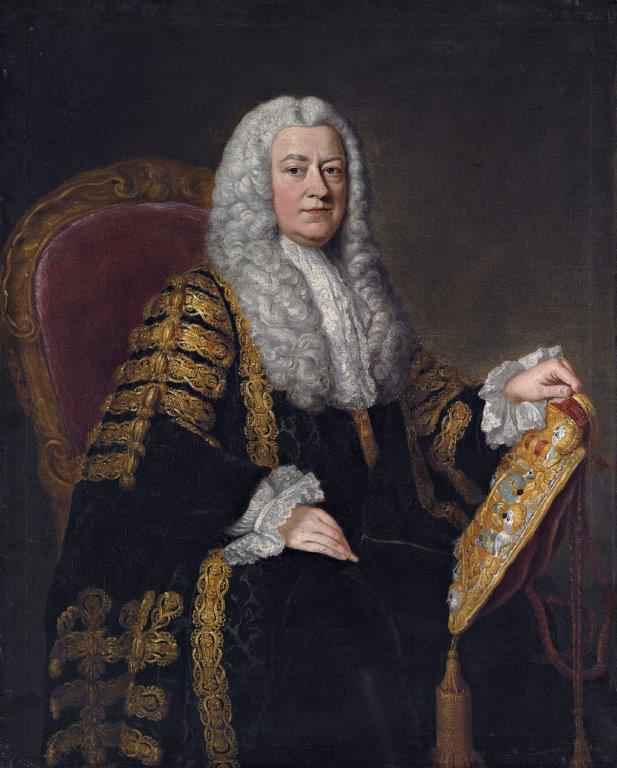Philip Y. Hardwicke Earl of (1690-1764)
Details
Type of entity: Person
Name: Philip Y. Hardwicke Earl of
Date of birth: 1690
Date of death: 1764
Source of information: Special Collections
Profile

Philip Yorke was born in 1690, son of the Dover attorney, Philip Yorke, and his wife Elizabeth. He was educated at the school run by Samuel Morland at Bethnal Green and then articled to a London attorney, Charles Salkeld of Holborn. Although lacking money, Yorke was ambitious and was entered at the Middle Temple in 1708. At about the same time, he became tutor to the son of the Lord Chief Justice, Thomas Parker.
Yorke was called to the bar in 1715 and quickly made a name for himself. He also enjoyed the patronage of Parker who in 1718 became Lord Chancellor (with the title Lord Macclesfield). In 1719, Yorke married a wealthy widow, Margaret Lygon (née Cocks), daughter of a prominent Worcestershire family and niece of a former Lord Chancellor. They had 5 sons and 2 daughters. In 1725, Yorke bought the Hardwicke estate in Gloucestershire, though never lived there. Later in life his wealth had increased to such an estate that in 1740 he was able to purchase Wimpole Hall in Cambridgeshire, which became the family seat.
By 1719, Yorke had attracted the attention of the Duke of Newcastle, who arranged for him to enter Parliament as MP for Lewes, and Yorke became a close confidant and political ally of the Duke for over 40 years. In 1720 the post of Solicitor-General became vacant and Macclesfield ensured that Yorke obtained it. Then in 1724, Yorke was promoted to Attorney-General. In 1733 he became Lord Chief Justice of King’s Bench and was created Baron Hardwicke.
Four years later, in 1737, the Lord Chancellor died and Hardwicke was appointed to replace him. As Lord Chancellor, he was outstanding in both political and legal spheres. He managed government business in the House of Lords, acted as speaker of the house, and heard legal appeals, as well as presiding over the Court of Chancery. When the King was abroad in Hanover, he was invariably named as one of the “lords justices” or regents. He was also a member of the cabinet and formed part of the inner circle of advisers around Newcastle and his brother, Henry Pelham. He was highly respected for his integrity and legal acumen and initiated or shaped several important pieces of legislation during his period in office.
In 1756, Newcastle was replaced as Prime Minister and Hardwicke also resigned as Lord Chancellor. Although Newcastle was able to regain the premiership in the following year, Hardwicke declined to resume his former position. However he retained great influence with Newcastle and even attended cabinet meetings in an informal capacity until Newcastle was again forced to resign in 1762. Hardwicke remained active in the House of Lords, forming, with Newcastle, part of the opposition to Bute and then Grenville. In 1763 he fell ill and died in London in 1764.

